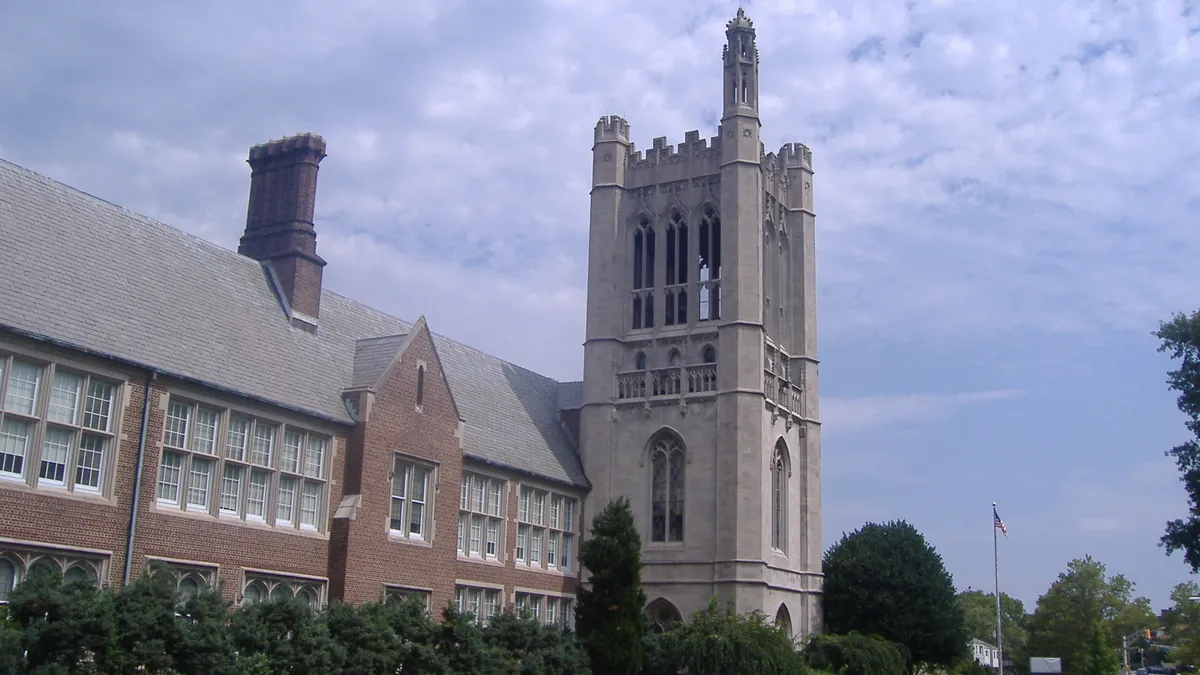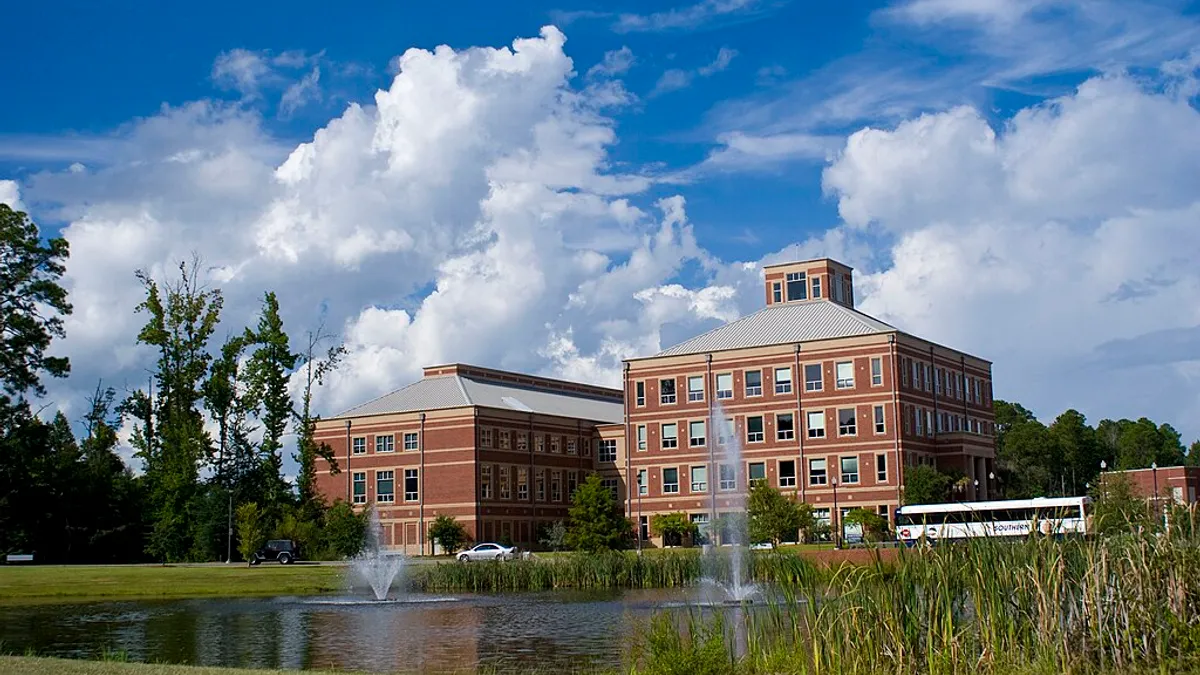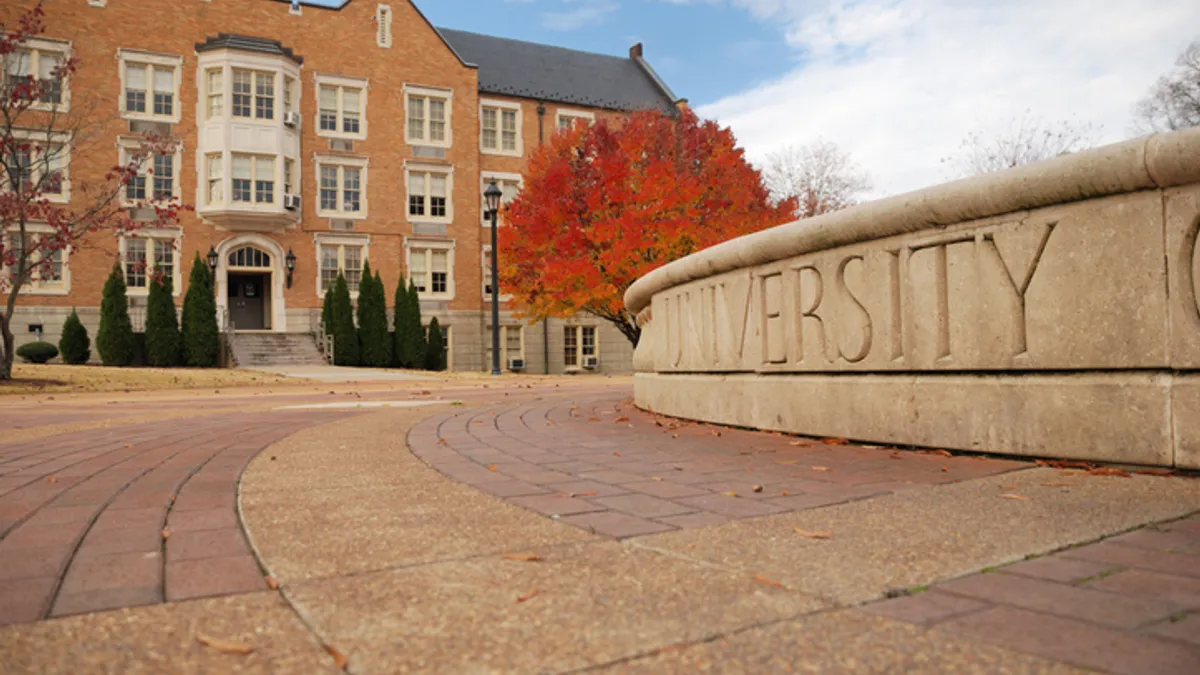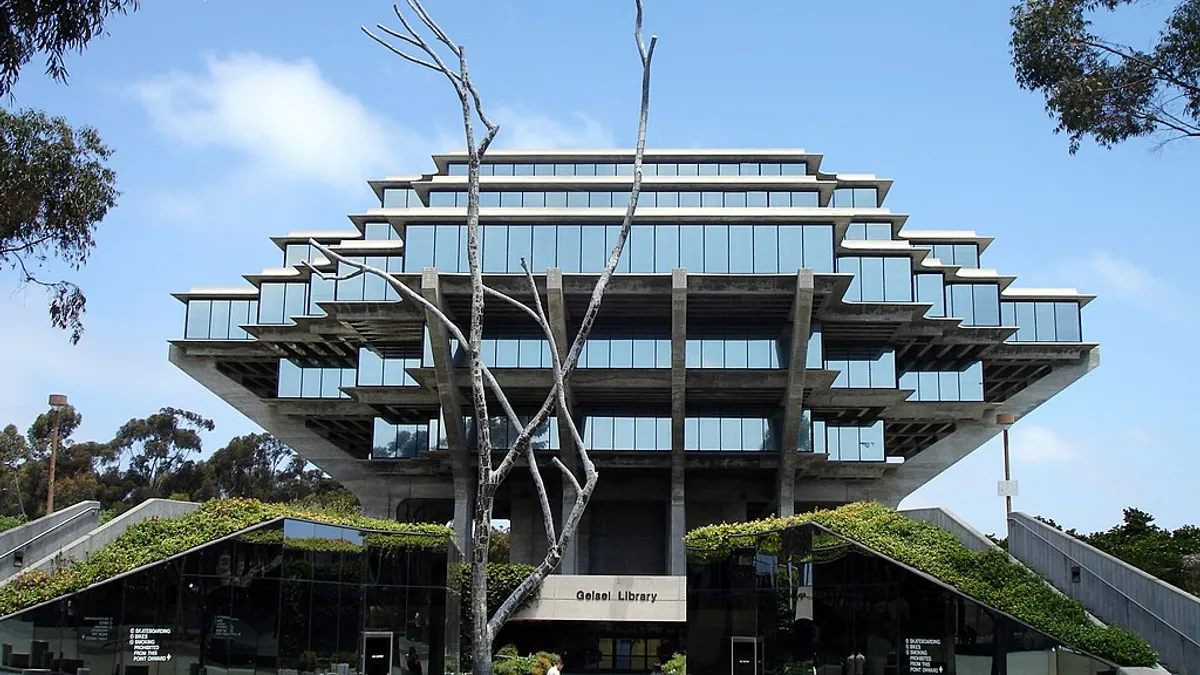A state-appointed monitor overseeing New Jersey City University’s finances and governance has directed that the public institution partner with another college to put it on better financial footing, according to a report released Tuesday.
New Jersey lawmakers approved a law last year allowing the state’s higher education secretary to assign a monitor to financially struggling public institutions to help them avoid catastrophic budget failures. The law was enacted a year after New Jersey City University declared a financial emergency in the face of a nearly $23 million deficit.
The state monitor, Henry Amoroso, said the partnership could range from sharing academic programs and administrative services with another public institution to fully merging with one. His plan requires New Jersey City University to begin searching for an advisory firm by mid-May to help find a partner institution.
Amoroso’s powers are wide-ranging, from overseeing the university’s financial management to having the ability to deny the administration’s proposals to hire or terminate employees, according to the statute.
New Jersey City University must strike a relationship with one of the state’s fiscally stable public institutions and meet all governance benchmarks before the monitor will end his oversight duties, the report states.
Andrés Acebo, interim president of New Jersey City University, said in a statement Wednesday that the institution looks forward to fully reviewing the plan and receiving further guidance from the state’s higher education department regarding the financial monitoring law.
“I appreciate the Monitor's attention and collaboration as we have continued our work of strengthening NJCU's mission and honorably serving the people we are privileged to serve,” Acebo said. “I remain confident in our community's resiliency and the brilliant promise of its future.”
What did the monitor find?
New Jersey City University is located in Hudson County, one of the state’s most urban regions. The 97-year-old university enrolls large shares of underrepresented students — around one-fifth of its undergraduates are Black, and nearly half are Hispanic or Latino, according to federal data.
Amoroso pointed to these qualities in the report, writing that the institution provides an “accessible, high-quality education to a diverse student body.” However, New Jersey City University has run into major hurdles over the past years, he wrote, including falling enrollment and “questionable financial management decisions.”
The university’s enrollment slipped from 8,504 students in fall 2016 to 6,539 students in fall 2022, a 23.1% decline. The resulting decline in tuition revenue — combined with the end of federal pandemic relief funds — brought the institution’s dire financial situation to the university’s board's attention, according to Amoroso's report.
An earlier report from the state comptroller’s office alleged that top university officials illicitly used pandemic relief funds for a scholarship program and failed to inform the board about a growing budget gap.
The university's president at the time, Sue Henderson, resigned in June 2022 on the same day the board declared a financial emergency. The institution has since been led by interim presidents.
Last year, New Jersey lawmakers threw the university a $10 million lifeline. However, the university also became the first to be overseen by a state-appointed monitor. Amoroso started monitoring the institution in September, and his report covers his findings through mid-March.
When Amoroso began monitoring the institution, he found that the administration had already implemented cost-cutting measures that began chipping away at the deficit. The university has also lowered spending on salaries and wages, from from $88.6 million in fiscal 2022 to $73.8 million budgeted for fiscal 2024.
Still, those measures have not been enough to remedy the institution’s financial challenges without “significant additional state investment,” Amoroso wrote. He concluded that New Jersey City University would face steep financial challenges as an independent institution.
“That path would require a much greater investment from the State than is presently offered, and the University would remain buffeted by significant fiscal challenges for many, many years,” Amoroso wrote.
For one, the university carries around $287.1 million in debt — an amount that compromises its fiscal stability, the report said. Amoroso also noted that the university’s expenses have consistently surpassed its revenues from fiscal year 2020 to fiscal year 2024, leading to chronic deficits.
“This reality compels NJCU to pursue a course of prompt action many other institutions have taken — namely, negotiating and implementing a strategic relationship with a partner institution from which both Universities can derive immediate and long-term benefits,” he wrote.
Amoroso made several other recommendations, including on improving the university’s governance. He wrote that the board’s committee structure is outdated, and that members don’t meet often enough to adequately oversee the institution's budget.
To address those issues, he recommended that the university defer its search for a permanent president until the board is restructured.
He also recommended that the board replace at least four board members, arguing that few current members were invested in promptly turning around the institution’s finances. The board currently has eight members, including one nonvoting student member, according to the university’s website.
“An infusion of new talent, interest, expertise, and enthusiasm can prepare this key governance body to tackle and complete the committee assignments and other Board work required to quickly achieve and permanently sustain NJCU’s fiscal turnaround,” Amoroso wrote.























